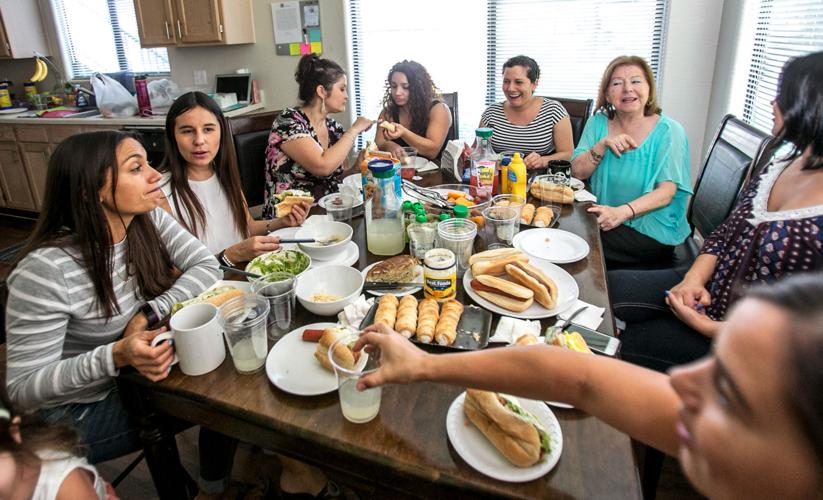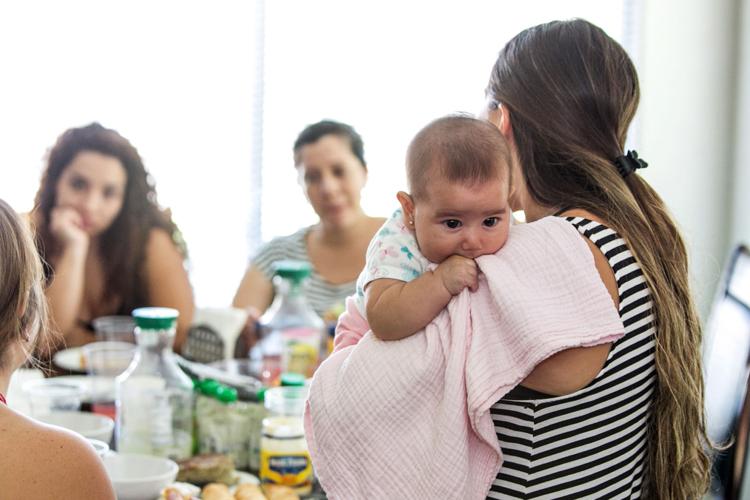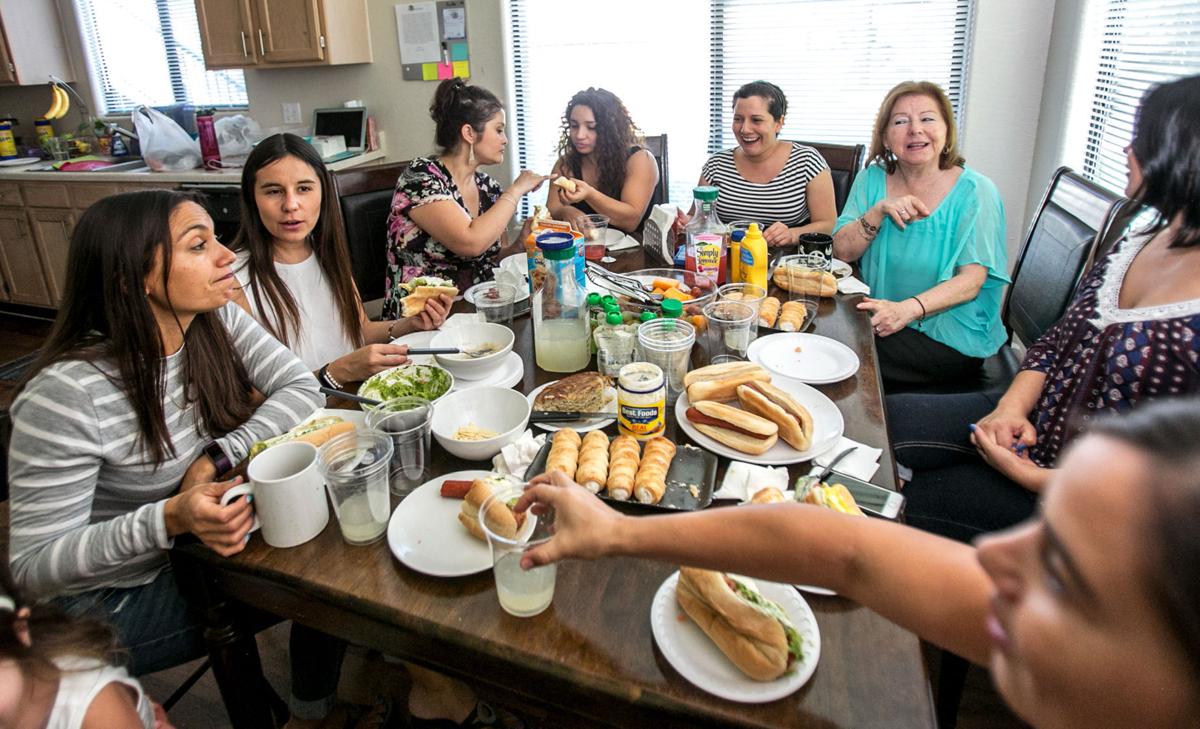Claudia Escobar’s first six months in Tucson were some of the loneliest she had ever experienced. She missed her family and friends back home in Chile, and with her husband working long hours on astronomy projects in Tucson, she was often left to her own devices in a new place.
Until one day, when she overheard her daughter talking to another girl at the park. She was from Valparaiso, a seaport in Chile, the little girl said. "You're from Chile? Where’s your mom?" Escobar asked the girl, who pointed out her mother. "I went over and said hello, and she invited me to a party to meet more Chileans."
It turned out a group of women from Chile, all here under similar situations, gathered every week for morning breakfast of homemade cinnamon buns and coffee at area parks or in each other’s homes to talk about their experiences and laugh at their cultural mishaps.
At times, the group consists of about 10 Chileans whose husbands’ astronomy-related work at the University of Arizona brought them to Tucson — plus the occasional Brazilian or Argentinian.

Raquel Salgado carries her baby Alicia Valdes, 4 mos old, during Grupo de Desayuno’s weekly breakfast club of Chilean women at the home of Daniela Droguett in Tucson, AZ. on October 27, 2017.
"To find other Chileans here is like finding family," said Raquel Salgado, for whom the move was especially difficult five years ago. Her teenage daughter stayed behind and due to the high cost of flying, she can’t visit as often as she would like.
In 2015, about 8,600 Chileans and their families were admitted to the U.S. under temporary visas, including 2,374 of them under H-4 visas, which are for college-educated people working in specialty or research occupations, according to data from U.S. Citizenship and Immigration Services.
Tucson has an unusual link to its distant southern neighbor, said Stephen Pompea, spokesman for the National Optical Astronomy Observatory, they both have wide, clear and quiet skies, ideal conditions for astronomical observation.
"Astronomy is a very international topic," he said. Many of the Chilean scientists who come here with particular skills in engineering and software development, for example, collaborate with astronomers on a project funded by the National Science Foundation to build a massive survey telescope that will be located in Chile.
But while the husbands work, their wives — often unable to get a job due to visa restrictions — find it harder to settle into routines and meet people. This is part of the reason why the breakfast group is so important in their lives, said Daniela Droguett.
"We can really support the new people that come here," said Droguett, who has been in Tucson for two years. "Because often you find yourself in situations you know nothing about."

Barbara Sinnott, center, and Daniela Droguett, right, share a laugh during their weekly breakfast club with other Chilean women whose husbands are in Tucson for astronomy work.
The differences in healthcare systems is one of those things, and has been one of the biggest learning curves for the women. In Chile, government-run health care is cheap or free, unlike in the U.S., Droguett said she found this out the hard way, nearly giving her husband a heart attack when he saw the bill from a recent emergency visit.
The breakfast offers an invaluable outlet for both the children and their mothers to capture something of the family support that they had in Chile — people who will be there through the good and the bad, they said. During a recent club meeting, a mother talked about her 12-year-old son being bullied at school since they moved from Chile a year ago, which led to a conversation about diversity in the different school districts.
"Since we're all in the same situation, the friendships we make are stronger," said Drougett. Even when their husbands’ projects end and they return to their different hometowns, the women said they will stay friends and see each other at least once a year.
"It's like finding sisters."







